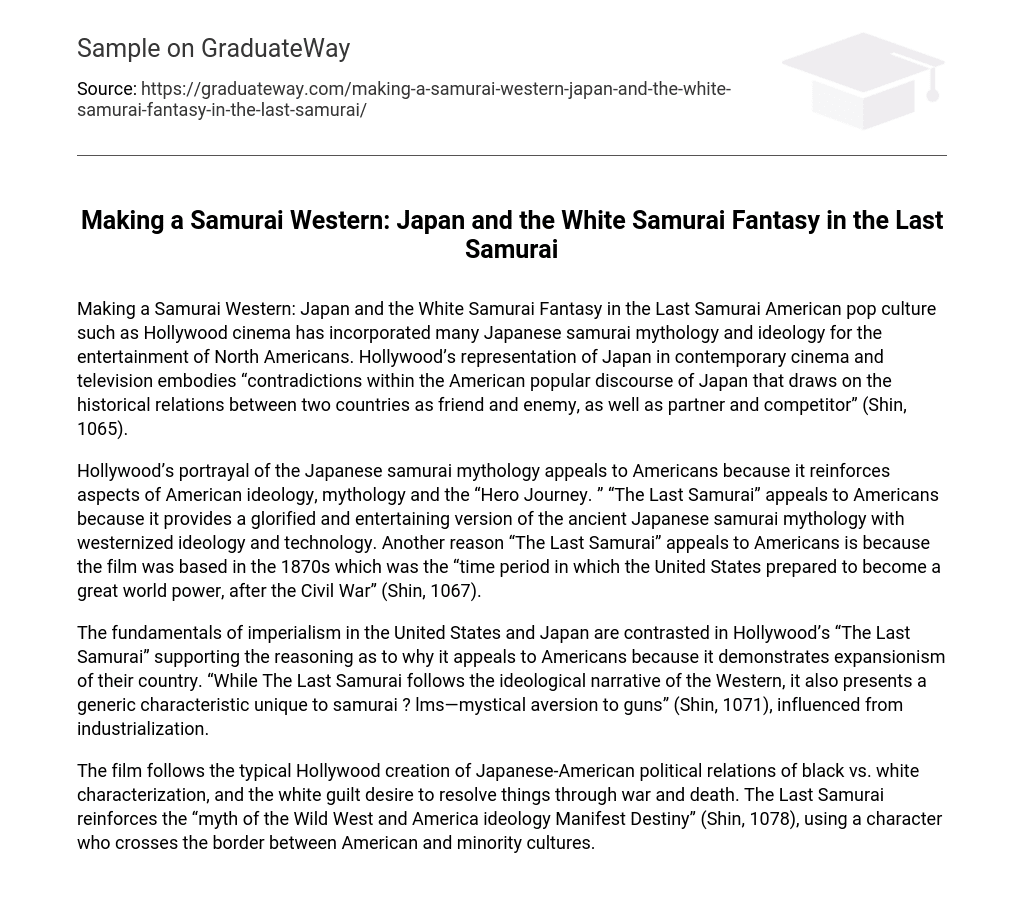Making a Samurai Western: Japan and the White Samurai Fantasy in the Last Samurai American pop culture such as Hollywood cinema has incorporated many Japanese samurai mythology and ideology for the entertainment of North Americans. Hollywood’s representation of Japan in contemporary cinema and television embodies “contradictions within the American popular discourse of Japan that draws on the historical relations between two countries as friend and enemy, as well as partner and competitor” (Shin, 1065).
Hollywood’s portrayal of the Japanese samurai mythology appeals to Americans because it reinforces aspects of American ideology, mythology and the “Hero Journey. ” “The Last Samurai” appeals to Americans because it provides a glorified and entertaining version of the ancient Japanese samurai mythology with westernized ideology and technology. Another reason “The Last Samurai” appeals to Americans is because the film was based in the 1870s which was the “time period in which the United States prepared to become a great world power, after the Civil War” (Shin, 1067).
The fundamentals of imperialism in the United States and Japan are contrasted in Hollywood’s “The Last Samurai” supporting the reasoning as to why it appeals to Americans because it demonstrates expansionism of their country. “While The Last Samurai follows the ideological narrative of the Western, it also presents a generic characteristic unique to samurai ? lms—mystical aversion to guns” (Shin, 1071), influenced from industrialization.
The film follows the typical Hollywood creation of Japanese-American political relations of black vs. white characterization, and the white guilt desire to resolve things through war and death. The Last Samurai reinforces the “myth of the Wild West and America ideology Manifest Destiny” (Shin, 1078), using a character who crosses the border between American and minority cultures.





